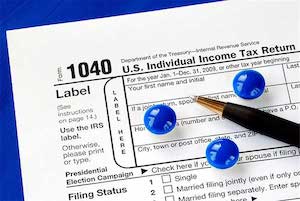November 2020 - Clearing the Clutter? How to Decide Which Records to Toss and Which to Keep
 These days we’re spending a lot more time at home and for some of us that means undertaking more household projects, including clearing out the clutter. Financial records are one of the things that seem to pile up quickly because we’re never sure what to toss, what to keep and for how long. Here’s a general guideline to help answer those questions.
These days we’re spending a lot more time at home and for some of us that means undertaking more household projects, including clearing out the clutter. Financial records are one of the things that seem to pile up quickly because we’re never sure what to toss, what to keep and for how long. Here’s a general guideline to help answer those questions.
W-2s, 1099s, and bank and investment statements are all necessary to support the income reported on your tax returns. For itemized returns, be sure to keep canceled checks, invoices, and receipts, too. The statute of limitations for the IRS to assess your tax returns is three years, with exceptions:
- Six-year statute of limitations if you substantially underestimate your income (the substantial understatement threshold is 25% of gross income)
- Seven-year statute of limitations if you claim a loss from worthless securities or file a deduction for bad debt.
Note: The IRS can investigate at any time for failure to file or for filing fraudulent tax returns.
Property RecordsProperty sales can result in a capital gains tax based on the cost basis of that property (exclusions apply for sales of primary residences). Cost basis is calculated by adjusting the actual cost of the property upward or downward based on certain factors, including major structural improvements. Retain receipts for major improvements for at least three years after the sale. Know that if you substantially overstate the cost of the property, the IRS has six years to act.
For rental properties, keep records of investments made in the properties and the depreciations deducted.
Investment RecordsWhile brokerage firms and mutual funds are now required to compute the cost basis of your investments, you’ll want to hold on to confirmations and statements in case you switch brokerage firms or investment advisors.
Paring down the clutter and getting your financial records in order is not only satisfying but it leaves you in good position for when tax time rolls around next year.
 New Jersey Injury Lawyers Kearns Rotolo Law Home
New Jersey Injury Lawyers Kearns Rotolo Law Home














